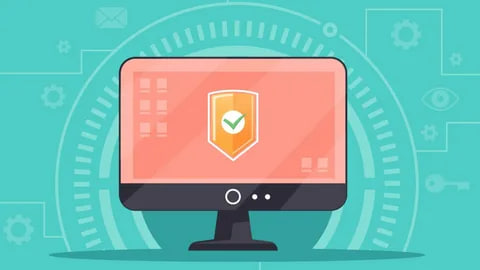Introduction
In an increasingly digital world, cybersecurity has become more critical than ever. As we navigate the internet daily, we expose ourselves to a myriad of online threats. From sophisticated malware to phishing scams, the risks are ever-present and growing in complexity. This is where antivirus software plays a vital role. It serves as the first line of defense, protecting your devices and data from harmful software and cyber attacks. Whether you’re a casual internet user or someone who handles sensitive information, having reliable antivirus software is non-negotiable.
Understanding Antivirus Software
Antivirus software is a type of program designed to detect, prevent, and remove malicious software from your devices. It scans your system for potential threats and neutralizes them before they can cause damage. Initially, these programs were developed to combat viruses alone, but as cyber threats evolved, so did antivirus software. Modern solutions now provide comprehensive protection against a wide array of dangers, including spyware, ransomware, and phishing attacks.
How Does Antivirus Software Work?
At its core, antivirus software operates using several key mechanisms:
- Signature-Based Detection: This method involves scanning files and comparing them to a database of known virus signatures. If a match is found, the software quarantines or removes the threat.
- Heuristic Analysis: This technique is used to identify new, previously unknown viruses by analyzing the behavior of a suspicious file. If a file behaves like a known virus, it’s flagged as a potential threat.
- Behavioral Detection: This method monitors programs in real-time and flags any unusual behavior, such as unauthorized access to system resources or suspicious network activity.
By combining these methods, antivirus software can effectively protect against both known and emerging threats.
Why You Need Antivirus Software
Even the most careful internet users can fall victim to cyber threats. Here are a few compelling reasons why antivirus software is essential:
- Protection Against Malware: Malware can come in various forms, such as viruses, worms, and Trojan horses. Antivirus software helps to prevent these malicious entities from compromising your system.
- Safe Browsing: Many antivirus programs offer safe browsing features that alert you if you’re about to enter a risky website or download a potentially harmful file.
- Data Security: Antivirus software helps protect your sensitive data, such as personal information and financial details, from being stolen or corrupted by cybercriminals.
- Ransomware Defense: Ransomware attacks, which lock you out of your data and demand a ransom for its release, are on the rise. Antivirus software can detect and block these threats before they take hold.
Choosing the Best Antivirus Software
With so many options available, selecting the best antivirus software can be daunting. Here are some key features to consider:
- Real-Time Protection: Look for software that offers real-time scanning and protection. This feature ensures that your system is continuously monitored for threats.
- Automatic Updates: Cyber threats evolve rapidly. Antivirus software that automatically updates its virus definitions is crucial for staying protected against the latest threats.
- System Performance: A good antivirus should be effective without significantly slowing down your system. Look for software that offers robust protection without compromising performance.
- Comprehensive Protection: The best antivirus solutions offer a wide range of protections, including firewall, phishing protection, and email scanning.
- User-Friendly Interface: An intuitive, easy-to-navigate interface is essential for users who aren’t tech-savvy.
Top Antivirus Software in 2024
Here’s a look at some of the top antivirus software options available in 2024:
1. Bitdefender Total Security: Known for its high detection rates and minimal impact on system performance, Bitdefender offers a comprehensive suite of features, including VPN and parental controls.
2. Norton 360 Deluxe: A robust option with excellent malware protection, Norton 360 includes cloud backup, a secure VPN, and dark web monitoring.
3. Kaspersky Total Security: This software is praised for its comprehensive security features, such as password management and file encryption, alongside its solid virus protection.
4. McAfee Total Protection: With its user-friendly interface and comprehensive security features, McAfee provides excellent protection for multiple devices.
5. ESET NOD32 Antivirus: ESET offers a lightweight yet powerful solution, ideal for gamers and those looking for strong protection without the bulk.
Free vs. Paid Antivirus Software: Which is Better?
When choosing antivirus software, you might wonder if free versions are sufficient. While free antivirus programs provide basic protection, they often lack advanced features found in paid versions. Here’s a comparison to help you decide:
- Free Antivirus: Offers basic protection against common threats. Ideal for light internet users. However, lacks advanced features like ransomware protection, firewall, and phishing safeguards.
- Paid Antivirus: Provides comprehensive protection, including advanced features like real-time scanning, phishing protection, parental controls, and more. Best suited for those who handle sensitive information or use their devices for business.
The Future of Antivirus Software
As cyber threats continue to evolve, so does antivirus software. Future trends in antivirus technology include:
- Artificial Intelligence and Machine Learning: These technologies are being integrated into antivirus software to enhance threat detection and response capabilities.
- Cloud-Based Antivirus: Cloud-based solutions are becoming more prevalent, providing protection without the need for regular updates.
- Behavioral Analysis: Expect to see more emphasis on behavioral analysis to detect and respond to zero-day threats.
- IoT Security: As more devices become interconnected, antivirus software will likely expand to offer protection for the Internet of Things (IoT).

FAQs
What is the best antivirus software for Windows?
Bitdefender and Norton are often recommended for Windows users due to their comprehensive protection and user-friendly interfaces.
Can antivirus software remove existing viruses?
Yes, most antivirus software can detect and remove existing viruses from your system. However, prevention is always better than cure.
Do I need antivirus software if I have a Mac?
While Macs are generally considered more secure, they are not immune to threats. Using antivirus software can provide an additional layer of protection.
How often should I update my antivirus software?
It’s best to allow automatic updates to ensure your antivirus software is always up-to-date with the latest threat definitions.
Is it safe to use free antivirus software?
Free antivirus software can provide basic protection, but for comprehensive security features, a paid version is recommended.
Can antivirus software protect against ransomware?
Yes, many antivirus programs offer ransomware protection, but it’s crucial to choose one with robust anti-ransomware features.
Conclusion
In today’s interconnected world, antivirus software is an indispensable tool for safeguarding your digital life. Whether you’re protecting personal information, financial data, or simply browsing the web, choosing the right antivirus solution can provide peace of mind. With options ranging from free to premium, there’s a solution for every user. Investing in reliable antivirus software is a small price to pay for the security and protection it offers against the ever-evolving landscape of cyber threats.



